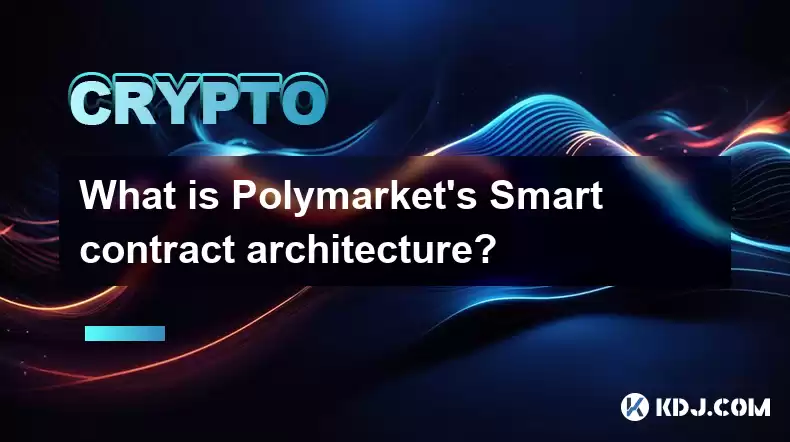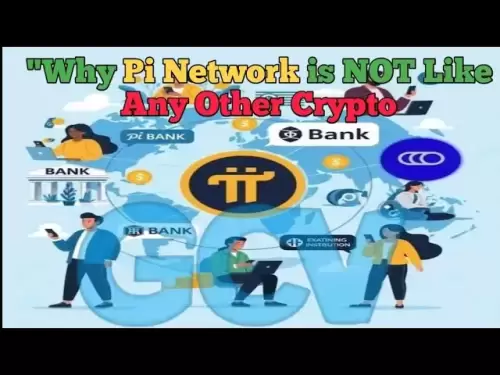-
 Bitcoin
Bitcoin $118300
1.01% -
 Ethereum
Ethereum $4215
0.69% -
 XRP
XRP $3.198
-3.83% -
 Tether USDt
Tether USDt $1.000
-0.01% -
 BNB
BNB $803.4
-0.53% -
 Solana
Solana $180.3
-0.67% -
 USDC
USDC $0.9998
-0.01% -
 Dogecoin
Dogecoin $0.2334
-1.49% -
 TRON
TRON $0.3394
0.86% -
 Cardano
Cardano $0.7980
-1.45% -
 Chainlink
Chainlink $22.19
6.65% -
 Hyperliquid
Hyperliquid $43.41
0.13% -
 Stellar
Stellar $0.4407
-3.13% -
 Sui
Sui $3.843
-2.24% -
 Bitcoin Cash
Bitcoin Cash $564.7
-3.74% -
 Hedera
Hedera $0.2588
-3.41% -
 Ethena USDe
Ethena USDe $1.001
0.00% -
 Avalanche
Avalanche $23.64
-3.37% -
 Litecoin
Litecoin $120.0
-4.01% -
 Toncoin
Toncoin $3.342
-1.11% -
 UNUS SED LEO
UNUS SED LEO $9.038
0.60% -
 Shiba Inu
Shiba Inu $0.00001347
-0.81% -
 Uniswap
Uniswap $10.69
-4.58% -
 Polkadot
Polkadot $4.034
-1.30% -
 Dai
Dai $1.000
0.01% -
 Bitget Token
Bitget Token $4.472
-1.52% -
 Cronos
Cronos $0.1571
-3.04% -
 Pepe
Pepe $0.00001207
-2.21% -
 Monero
Monero $273.8
-3.19% -
 Ethena
Ethena $0.7520
2.75%
What is Polymarket's Smart contract architecture?
Polymarket's robust smart contract architecture ensures the transparency, security, and immutability of its prediction markets, empowering users with ownership, facilitating fair outcomes, and safeguarding funds.
Feb 06, 2025 at 08:18 am

Polymarket's Smart Contract Architecture: A Comprehensive Guide
Polymarket, a decentralized platform for prediction markets, relies on a robust smart contract architecture to ensure transparency, security, and immutability. This article delves into the intricate details of Polymarket's smart contract design, addressing key questions about its functionality and reliability.
Core Principles of Polymarket's Smart Contracts
- Transparency: All contract logic and transaction data are publicly accessible on the blockchain, fostering trust and accountability among participants.
- Security: The platform employs rigorous auditing and testing protocols to mitigate vulnerabilities and safeguard user funds.
- Immutability: The smart contracts are immutable once deployed, preventing unauthorized alterations or manipulations.
Key Components of Polymarket's Smart Contracts
Market Creation
- Creators can define market parameters such as question, resolution date, and token allocation.
- Contracts ensure ownership and control over market parameters, empowering creators.
Token Distribution
- Users can purchase prediction tokens representing their beliefs about the outcome.
- Smart contracts facilitate the distribution of tokens and track ownership transparently.
Resolution
- Once the resolution date passes, oracles provide the outcome.
- The contract uses this information to determine winners and distribute winnings.
Market Management
- Creators have tools to pause, cancel, or extend markets.
- Smart contracts enforce these actions automatically, maintaining market integrity.
Dispute Resolution
- Users can dispute oracle outcomes.
- A decentralized voting mechanism resolves disputes, ensuring fairness and accuracy.
Fee Structure
- Polymarket charges a platform fee on all transactions.
- The fee structure is defined in the contract, ensuring predictability and transparency.
Platform Governance
- Users stake tokens to participate in platform governance.
- Proposals for improvements or changes are voted on through smart contracts.
Oracles
- Polymarket utilizes decentralized oracles to provide reliable outcome information.
- Oracle providers must meet stringent criteria to ensure quality and reliability.
FAQs
Q: How does Polymarket prevent malicious oracles?
- Polymarket requires oracles to stake collateral and participate in a reputation system. Malicious or inaccurate reporting can result in penalties or disqualification.
Q: Can markets be manipulated?
- Polymarket's smart contracts have built-in mechanisms to mitigate manipulation, such as rate limits and oracle consensus requirements.
Q: What are the risks associated with using Polymarket?
- As with any cryptocurrency platform, Polymarket is subject to market volatility and the potential for technical failures or security breaches.
Disclaimer:info@kdj.com
The information provided is not trading advice. kdj.com does not assume any responsibility for any investments made based on the information provided in this article. Cryptocurrencies are highly volatile and it is highly recommended that you invest with caution after thorough research!
If you believe that the content used on this website infringes your copyright, please contact us immediately (info@kdj.com) and we will delete it promptly.
- Cold Wallet's Hot Streak: Acquisition, User Growth, and How it Stacks Up Against Ethereum & XRP
- 2025-08-10 20:30:16
- Bitcoin, Cloud Mining, and Crypto Earnings: What's Hot in 2025?
- 2025-08-10 20:50:12
- Presale Cryptos Face-Off: BlockDAG, TOKEN6900, and the Hunt for the Next Big Thing
- 2025-08-10 20:55:12
- DeFi, Meme Coins, and 2025: Navigating the Crypto Landscape
- 2025-08-10 20:30:16
- Cardano, Returns, and Trade Deals: A New Yorker's Take
- 2025-08-10 18:50:16
- Dogwifhat's Comeback: Solana Meme Coin Mania and Beyond!
- 2025-08-10 18:30:15
Related knowledge

What is Ethereum’s Slashing mechanism and how to punish malicious behavior?
Feb 20,2025 at 03:08am
Key PointsOverview of slashingDifferent types of slashing in EthereumIncentives and consequences of slashingIdentifying and reporting slashed validato...

What is the verifier node of Ethereum and how to become a verifier?
Feb 19,2025 at 06:00pm
The Verifier Node of Ethereum: A Comprehensive GuideKey Points:What is a Verifier Node?How to Become a Verifier NodeResponsibilities and Rewards of a ...

What is Ethereum’s staking, and how to participate and earn money?
Feb 19,2025 at 04:37pm
Key Points:Understanding Ethereum's Staking MechanismSteps to Participate in StakingBenefits and Rewards of StakingSecurity and Risk ConsiderationsTec...

What is Ethereum’s DAO (Decentralized Autonomous Organization) and how does it work?
Feb 20,2025 at 03:12am
Key PointsDefinition and Structure of a DAOGovernance and Decision-Making in DAOsBenefits and Use Cases of DAOsChallenges and Limitations of DAOsWhat ...

What is Ethereum's multi-signature wallet and how to improve security?
Feb 20,2025 at 02:18pm
Key Points:Understanding the Concept of a Multi-Signature WalletBenefits and Drawbacks of Multisig WalletsRequirements for Setting Up a Multisig Walle...

What is Ethereum's oracle and how to provide data for smart contracts?
Feb 21,2025 at 01:30am
Key Points:Understanding the concept of oracles in EthereumExploring different types of oraclesDetailed guide on how to provide data for smart contrac...

What is Ethereum’s Slashing mechanism and how to punish malicious behavior?
Feb 20,2025 at 03:08am
Key PointsOverview of slashingDifferent types of slashing in EthereumIncentives and consequences of slashingIdentifying and reporting slashed validato...

What is the verifier node of Ethereum and how to become a verifier?
Feb 19,2025 at 06:00pm
The Verifier Node of Ethereum: A Comprehensive GuideKey Points:What is a Verifier Node?How to Become a Verifier NodeResponsibilities and Rewards of a ...

What is Ethereum’s staking, and how to participate and earn money?
Feb 19,2025 at 04:37pm
Key Points:Understanding Ethereum's Staking MechanismSteps to Participate in StakingBenefits and Rewards of StakingSecurity and Risk ConsiderationsTec...

What is Ethereum’s DAO (Decentralized Autonomous Organization) and how does it work?
Feb 20,2025 at 03:12am
Key PointsDefinition and Structure of a DAOGovernance and Decision-Making in DAOsBenefits and Use Cases of DAOsChallenges and Limitations of DAOsWhat ...

What is Ethereum's multi-signature wallet and how to improve security?
Feb 20,2025 at 02:18pm
Key Points:Understanding the Concept of a Multi-Signature WalletBenefits and Drawbacks of Multisig WalletsRequirements for Setting Up a Multisig Walle...

What is Ethereum's oracle and how to provide data for smart contracts?
Feb 21,2025 at 01:30am
Key Points:Understanding the concept of oracles in EthereumExploring different types of oraclesDetailed guide on how to provide data for smart contrac...
See all articles

























































































